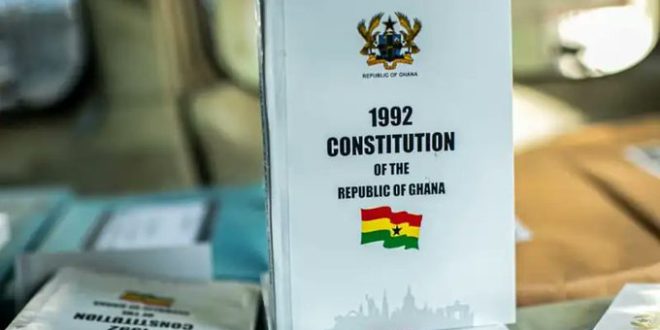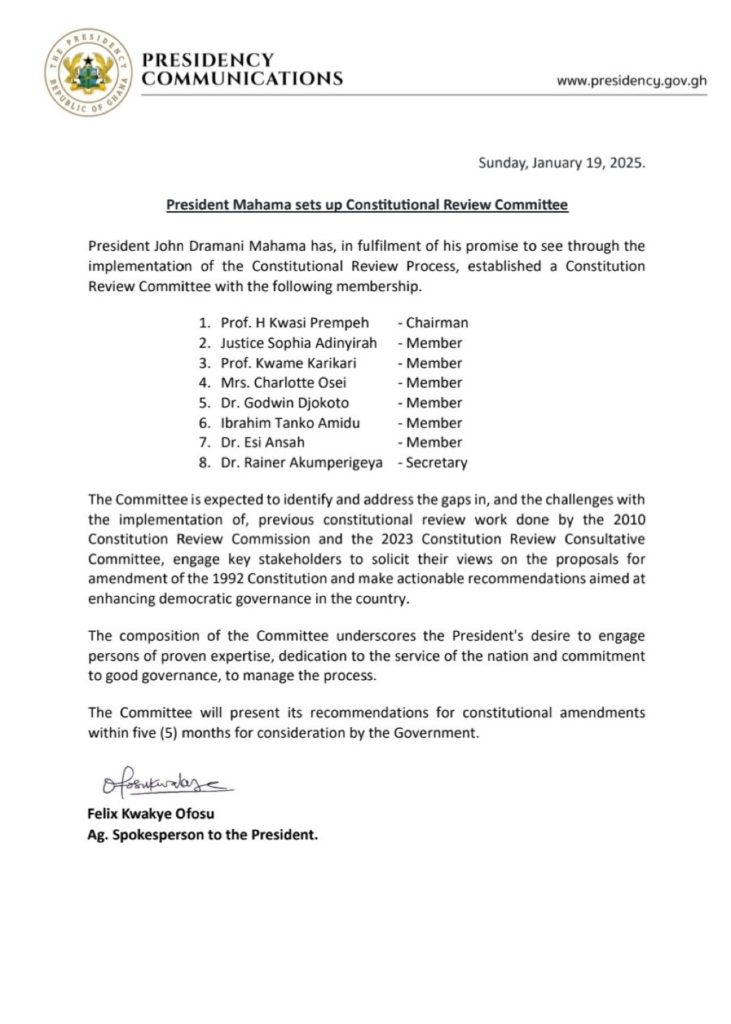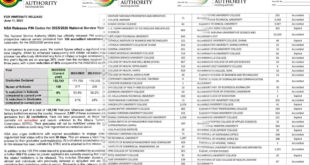1. Establishment of a Committee:
A committee of experts is appointed to assess the existing constitution. The committee must consist of professionals with expertise in law, governance, and policy, as seen in the example provided. The new committee should have a clear mandate to identify gaps, outdated provisions, and areas requiring improvement.
2. Engagement with Stakeholders:
The committee should engage a wide range of stakeholders, including political parties, civil society organizations, traditional authorities, religious groups, academia, and the general public. This ensures inclusivity and garners widespread support for the proposed amendments.
3. Public Consultations:
Organize nationwide consultations to solicit the views of Ghanaians. This step allows ordinary citizens to voice their concerns and suggestions, ensuring the amendments reflect their needs and aspirations.
4. Drafting Proposed Amendments:
The committee compiles the feedback and drafts a proposal for amendments. The draft should be clear, addressing the identified gaps while ensuring consistency with Ghana’s legal framework and international commitments.
5. Submission of Recommendations:
The recommendations are submitted to the government for consideration. In Mahama’s case, the timeline for submission is five months, ensuring the process remains focused and time-bound.
6. Cabinet Approval:
The executive branch reviews the proposed amendments. After approval, the proposal is sent to Parliament for further action.
7. Parliamentary Debate and Approval:
Parliament debates and votes on the proposed amendments. For constitutional amendments, a supermajority (two-thirds) vote is often required.
8. National Referendum:
Some amendments, particularly those affecting entrenched provisions, require approval through a national referendum. This ensures broad-based acceptance and legitimacy.
9. Implementation of Amendments:
Once approved, the amendments are officially incorporated into the constitution, and measures are taken to enforce the new provisions.
Challenges Faced by Previous Attempts
1. Lack of Political Will:
Previous reviews, such as the 2010 Constitutional Review Commission, faced delays due to insufficient commitment from successive governments to implement recommendations.
2. Insufficient Public Involvement:
Limited public awareness and engagement in the process led to skepticism and reduced support for proposed changes.
3. Resource Constraints:
Inadequate funding and logistical challenges hindered the effectiveness of past efforts.
4. Political Polarization:
Partisan interests often overshadowed national interests, creating obstacles to achieving consensus on critical issues.
5. Failure to Address Entrenched Provisions:
The process of amending entrenched provisions is complex and requires broad-based support, which was not adequately secured in the past.
Guidelines for the New Committee
1. Set Clear Objectives:
Define specific goals and focus on addressing critical gaps rather than attempting an exhaustive review of the entire constitution.
2. Ensure Transparency:
Regularly update the public on progress and maintain transparency in decision-making to build trust and confidence.
3. Prioritize Inclusivity:
Actively involve marginalized groups, including women, youth, and rural communities, to ensure the amendments reflect the diversity of Ghana.
4. Adopt a Time-Bound Approach:
Stick to the proposed timeline to avoid unnecessary delays and loss of momentum.
5. Promote Non-Partisanship:
Foster collaboration across political divides to prioritize the nation’s interests over party politics.
6. Secure Adequate Funding:
Allocate sufficient resources to facilitate effective stakeholder engagement, research, and public consultations.
7. Educate the Public:
Conduct a public education campaign to inform Ghanaians about the importance of the amendments and encourage participation in the process.
Analysis of Committee Members’ Competence
Based on publicly available information:
1. Prof. H. Kwasi Prempeh (Chairman):
An esteemed constitutional law expert and Executive Director of CDD-Ghana. His experience makes him highly competent to lead the review process.
2. Justice Sophia Adinyirah:
A retired Supreme Court justice with extensive judicial experience. Her inclusion ensures a strong legal foundation for the review.
3. Prof. Kwame Karikari:
A media and governance expert, bringing valuable insights into communication and public engagement.
4. Mrs. Charlotte Osei:
Former EC Chair with experience in managing public institutions and elections. Her knowledge of governance processes is invaluable.
5. Dr. Godwin Djokoto:
A legal scholar with expertise in constitutional law, adding depth to the committee’s legal analysis.
6. Ibrahim Tanko Amidu:
Known for his work in governance and policy advocacy, contributing practical perspectives.
7. Dr. Esi Ansah:
A governance and leadership expert, adding diverse insights to the committee.
8. Dr. Rainer Akumperigeya (Secretary):
A governance and policy analyst, providing organizational and technical support to the committee.
Sentiments:
The committee appears balanced and well-qualified. However, diversity in regional representation and gender could be improved.
Alternative Proposals for Appointments
1. Inclusion of Traditional Leaders:
Add representatives from the National House of Chiefs to provide a cultural perspective.
2. Youth Representation:
Include a young leader or activist to reflect the views of Ghana’s growing youth population.
3. Broader Regional Representation:
Ensure members are drawn from all regions to capture the diversity of Ghanaian society.
4. Civil Society Participation:
Include representatives from civil society organizations with experience in governance and constitutional reforms.
Avoiding Previous Mistakes
1. Commit to Implementation:
Ensure a binding commitment from the government to act on the committee’s recommendations.
2. Enhance Public Buy-In:
Use innovative methods, such as town halls and social media campaigns, to involve citizens in the process.
3. Secure Political Consensus:
Engage political leaders early to build bipartisan support for the amendments.
4. Allocate Resources Strategically:
Invest in logistics, research, and public education to support the review process.
By following these steps and guidelines, Ghana can overcome past challenges and successfully amend its constitution to meet the needs of its people.
THANK YOU for constantly reading stories on MyGhanaMedia.com, a news publishing website from Ghana. Kindly like, follow, comment, and SHARE stories on all social media platforms for more entertaining updates!
Follow us on Twitter: https://twitter.com/
Source: MyGhanaMedia.com
There are four types of content published on MyGhanaMedia.com daily: curated content; syndicated content; user-generated content; and original content.
 MYGHANAMEDIA.COM Best Source Of Latest News
MYGHANAMEDIA.COM Best Source Of Latest News





